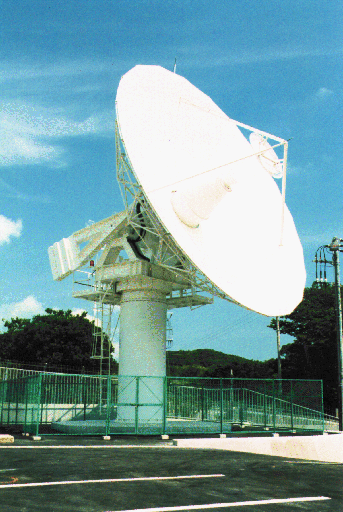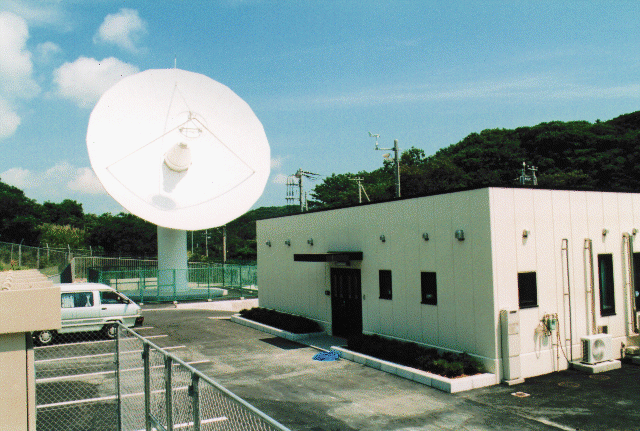Communications Research Laboratory
893-1 Hirai, Kashima, Ibaraki 314, Japan
Communications Research Laboratory has been developing a Crustal Deformation Monitoring System for the Tokyo Metropolitan Area named the Key Stone Project "KSP" system. The four VLBI stations, Koganei, Kashima, Miura and Tateyama, are distributed around the Tokyo Metropolitan Area to form the VLBI network dedicated to the prediction of earthquakes occur there. In August, 1996, construction of the fourth (and last) station (Tateyama) was completed. Since September, 1996, VLBI daily observation started including Tateyama VLBI station. An antenna at Tateyama and station building are shown in Photos 1 and 2. Daily VLBI observation at the four station is automatically carried out by commands from the central control system at Koganei central station or at the Kashima sub-central station. Daily operation is quite going well. In May, 1996, the first real-time fringes were successfully detected between Koganei and Kashima station. The VLBI signal data (with a rate of 256 Mbps) were \pagebreak also successfully transmitted from Kashima to Koganei central station using the optical fiber link (see IERS TDC News No.8, June 1996). The results of KSP daily VLBI observation were opened to public through the World Wide Web (URL https://ksp.nict.go.jp/).
 Photo 1. An 11 m antenna at Tateyam.
Photo 1. An 11 m antenna at Tateyam.
 Photo 2. Tateyama VLBI station.
Photo 2. Tateyama VLBI station.